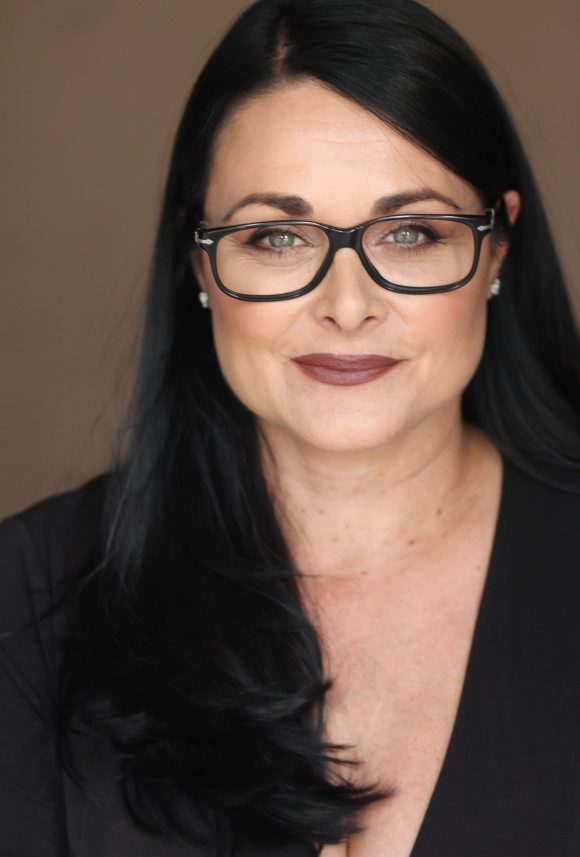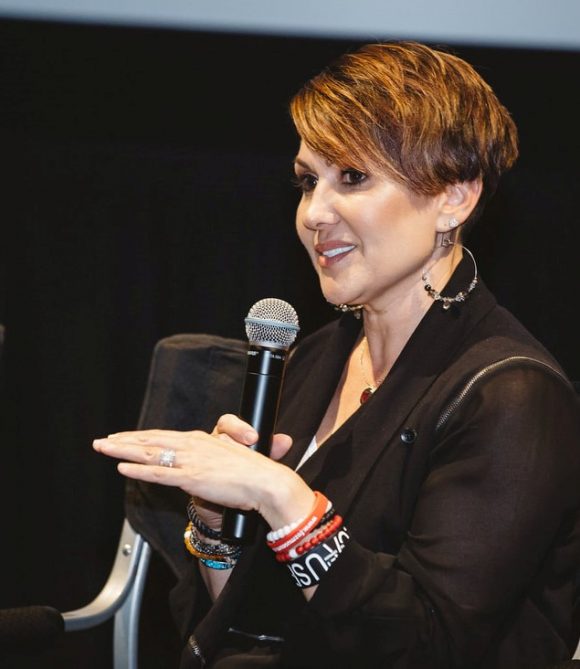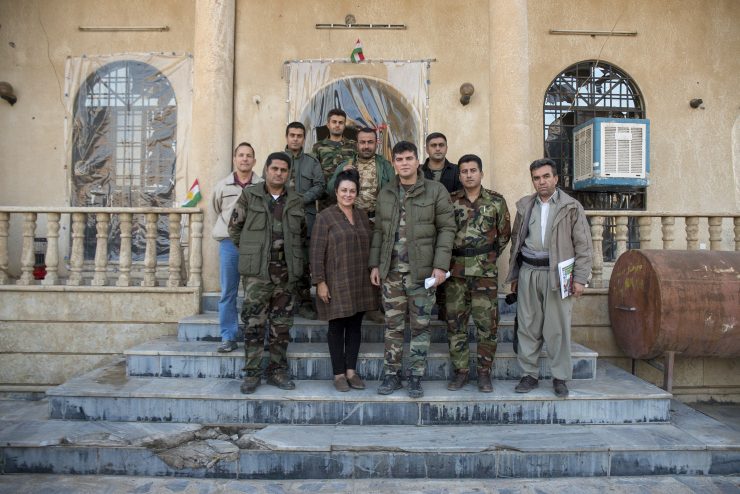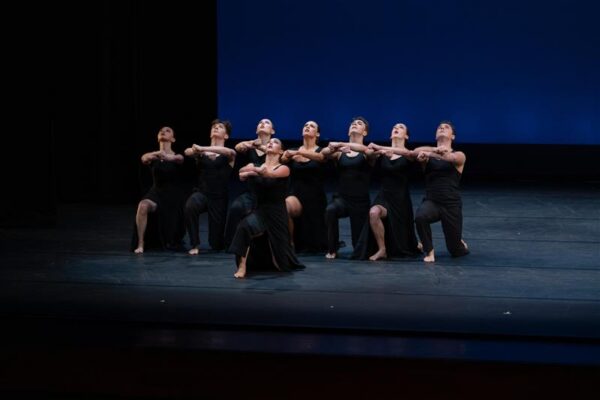Chapman University film professor Kelly Galindo had a pretty ambitious idea when she set out to make a short documentary about an organization in Thailand that liberates girls and women caught in the illicit sex trade there.
But little did Galindo realize it was just the beginning of something much bigger. Because during that 2016 trip she discovered there is more to the story of sex trafficking than what was happening in one corner of the world.

“It’s a global issue,” Galindo says. “It’s everywhere.”
So she revamped her project and expanded it into a feature documentary chronicling several rescue organizations working around the world, from the war-torn villages of Iraq to the tourist motels of Orange County.
Amazon Prime, iTunes, GooglePlay and YouTube recently released the seven-minute pilot for “26 Seconds,” named for the statistic describing the rate at which sexual trafficking occurs, according to the International Human Trafficking Task Force.
Chapman Interns Collaborate
Galindo and a group of Chapman film interns are hunkered down this summer in Chapman Studios West, where they are reviewing footage and taking notes for the lead editor, Mark Wilcken, winner of three Emmys for writing, editing and cultural documentary for his piece, “Clean Lines, Open Spaces.”
Galindo’s hope is that the “26 Seconds” documentary will help viewers around the world understand the growth of sex trafficking and shed light on the organizations that rescue victims from the sex trade and help them build new lives. Sexual exploitation makes up 79 percent of all human trafficking, according to a United Nations report released in January.
In a preview video for “26 Seconds,” Galindo offers reasons for hope.
“I’ve met the most incredible people. The founders of all these organizations are true heroes. They’re in the trenches doing the hard work every day,” she says.
Shifting to the broader scope of a feature documentary also allowed her to bring the story home. Among the women Galindo features is Orange County resident Oree Freeman, a former trafficking victim who speaks about her experience in an effort to raise awareness and help others escape similar abuse. Orange County is just one of many U.S. hubs for sexual trafficking, says Galindo, who traveled to Los Angeles, San Diego, Las Vegas and a Super Bowl as well as nine other countries to film for “26 Seconds.”
Sex Trade Is Global
“I’m an optimist. I think most people have good hearts,” says Galindo, who teaches directing at Dodge College of Film & Media Arts. “But in the U.S. we’re a nation of incredible naiveté. That’s why I wanted to include the U.S. The sex trade exists right here in our own back yards.”
The pilot, released earlier this year, focuses on Thailand and Cambodia, where she filmed undercover to capture scenes in the red light districts and clubs where sex slaves are repeatedly bought and sold through the night.
“I have no choice, I have nowhere to go. I would like to tell you my name, but my name was taken away from me,” one woman confides in the pilot.

Galindo also interviewed trafficking survivors in Mexico, India, East Africa and the refugee camps of Iraq, where Kurdish soldiers provided security, an essential safeguard at the time when ISIS still occupied Mosul.
Depending on the region, multiple causes contribute to the underground industry. Galindo ticks offs the most common factors – poverty in Southeast Asia, war in Iraq and predators who target runaways in the United States. But two threads usually connect them all.
“Every single survivor I spoke to was molested as a child — most often by their own relatives — so they have already been groomed and their trust and confidence broken. When I asked about their customers, everyone I interviewed said their Johns are married with kids the same age as them.”
Shared Spirit
Despite the grim subject of the project, Galindo brings joyful energy to it. At a meeting to discuss the work, she arrives with a thermos of hazelnut-flavored coffee and extra cups for sharing. She laughs as she lifts an oversized tote bag stuffed with notebooks, a laptop and flash drives filled with interviews and footage.
“My whole life is in here,” she jokes.
A former actor with credits on “ER,” “The Closer,” “Flashforward,” “Sons of Anarchy” and much more, Galindo says her passion for the project stems from an empathy she shares with survivors.
“I wasn’t trafficked, but as an actress, I was definitely exploited,” she says.
Hope for Victims

She also draws inspiration from the nonprofit organizations that tackle the problem every day through rescue operations and programs to help victims rebuild their lives. Among the groups featured in the documentary is Strike Out Slavery, a nonprofit started by Deidre Pujols, wife of Angels first baseman Albert Pujols. The organization focuses on conducting education and awareness events at Major League Baseball games.
“Deidre was interested in ’26 Seconds’ because there was hope provided by all of the NGOs highlighted in the documentary for the victim and survivors of the sex trade,” she says.
Kelly and her team aim to complete the editing process and post-production by January — National Anti-Slavery & Human Trafficking Month.
Meanwhile, Galindo also works with advisor Sid Ganis, former president of the Academy of Motion Picture Arts and Sciences, and fundraising strategist Steve Kaloper to build backing for the project. Galindo fronted $100,000 for travel and production, with the vision of eventually sharing a percentage of profits with all the nonprofit organizations featured in the documentary.
“I took a leap of faith,” she says. “I wanted to put this project out in the world to create awareness and a call to action.”
Display image at top/Kelly Galindo with Kurdish soldiers who provided security during her filming in Iraq. (Photo courtesy of Alberto De Coste Calla)




